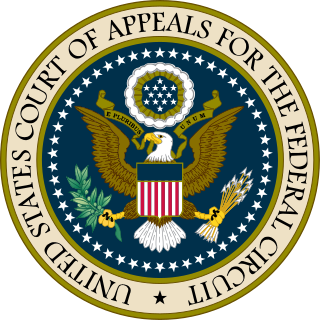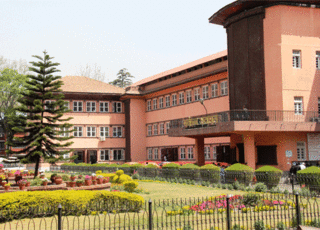
The Supreme Court of Canada is the highest court in the judicial system of Canada. It comprises nine justices, whose decisions are the ultimate application of Canadian law, and grants permission to between 40 and 75 litigants each year to appeal decisions rendered by provincial, territorial and federal appellate courts. The Supreme Court is bijural, hearing cases from two major legal traditions and bilingual, hearing cases in both official languages of Canada.
The Courts of England and Wales, supported administratively by His Majesty's Courts and Tribunals Service, are the civil and criminal courts responsible for the administration of justice in England and Wales.
In common law systems, a superior court is a court of general jurisdiction over civil and criminal legal cases. A superior court is "superior" in relation to a court with limited jurisdiction, which is restricted to civil cases involving monetary amounts with a specific limit, or criminal cases involving offenses of a less serious nature. A superior court may hear appeals from lower courts. For courts of general jurisdiction in civil law system, see ordinary court.
The Court of Appeal for Ontario is the appellate court for the province of Ontario, Canada. The seat of the court is Osgoode Hall in downtown Toronto.
The court system of Canada is made up of many courts differing in levels of legal superiority and separated by jurisdiction. In the courts, the judiciary interpret and apply the law of Canada. Some of the courts are federal in nature, while others are provincial or territorial.

The United States Court of Appeals for the Federal Circuit is one of the 13 United States courts of appeals. It has special appellate jurisdiction over certain categories of specialized cases in the U.S. federal court system. Specifically, it has exclusive appellate jurisdiction over all U.S. federal cases involving patents, trademark registrations, government contracts, veterans' benefits, public safety officers' benefits, federal employees' benefits, and various other types of cases. The Federal Circuit has no jurisdiction over criminal, bankruptcy, immigration, or U.S. state law cases. It is headquartered at the Howard T. Markey National Courts Building in Washington, DC.

The Court of Appeal for Nova Scotia is the highest appeal court in the province of Nova Scotia, Canada. There are currently 8 judicial seats including one assigned to the Chief Justice of Nova Scotia. At any given time there may be one or more additional justices who sit as supernumerary justices. The court sits in Halifax, which is the capital of Nova Scotia. Cases are heard by a panel of three judges. They publish approximately 80 cases each year.
The Superior Court of Justice is a superior court in Ontario. The Court sits in 52 locations across the province, including 17 Family Court locations, and consists of over 300 federally appointed judges.

The Court of Appeal of Quebec is the highest judicial court in Quebec, Canada. It hears cases in Quebec City and Montreal.

The Federal Court of Appeal is a Canadian appellate court that hears cases concerning federal matters.

The Supreme Court of British Columbia is the superior trial court for the province of British Columbia, Canada. The Court hears civil and criminal law cases as well as appeals from the Provincial Court of British Columbia. There are 90 judicial positions on the Court in addition to supernumerary judges, making for a grand total of 108 judges. There are also 13 Supreme Court masters, who hear and dispose of a wide variety of applications in chambers.

The Supreme Court of Nepal is the highest court in Nepal. It has appellate jurisdiction over decisions of the seven High Courts and extraordinary original jurisdiction. The court consists of twenty Judges and a Chief Justice.

The British Columbia Court of Appeal (BCCA) is the highest appellate court in the province of British Columbia, Canada. It was established in 1910 following the 1907 Court of Appeal Act.
The Court of Appeal of New Brunswick is the appellate court in the province of New Brunswick. There are five Justices, one Chief Justice, any former judge of the Court of Appeal who is a supernumerary judge and any former Chief Justice of New Brunswick who is a judge or a supernumerary judge. The court sits in Fredericton, New Brunswick. Cases are heard by a panel of three judges.

The Court of Appeal for Saskatchewan (SKCA) is a Canadian appellate court.
A master is a judge of limited jurisdiction in the superior courts of England and Wales and in numerous other jurisdictions based on the common law tradition. A master's jurisdiction is generally confined to civil proceedings and is a subset of that of a superior court judge or justice. Masters are typically involved in hearing specialized types of trials, case management, and in some jurisdictions dispute resolution or adjudication of specific issues referred by judges.

In most legal jurisdictions, a supreme court, also known as a court of last resort, apex court, and highcourt of appeal, is the highest court within the hierarchy of courts. Broadly speaking, the decisions of a supreme court are binding on all other courts in a nation and are not subject to further review by any other court. Supreme courts typically function primarily as appellate courts, hearing appeals from decisions of lower trial courts, or from intermediate-level appellate courts. A Supreme Court can also, in certain circumstances, act as a court of original jurisdiction, however, this is typically limited to constitutional law.
The Court of King's Bench for Saskatchewan is the superior trial court for the Canadian province of Saskatchewan.
The Court of King's Bench of Manitoba —or the Court of Queen’s Bench of Manitoba, depending on the monarch—is the superior court of the Canadian province of Manitoba.
The Court of Appeal of Alberta is a Canadian appellate court that serves as the highest appellate court in the jurisdiction of Alberta, subordinate to the Supreme Court of Canada.










